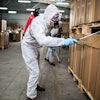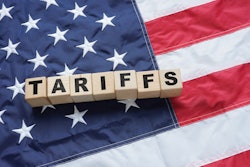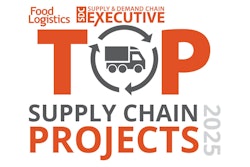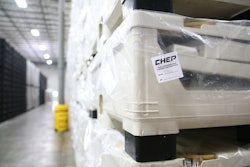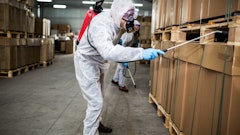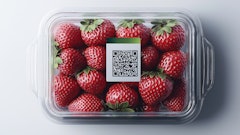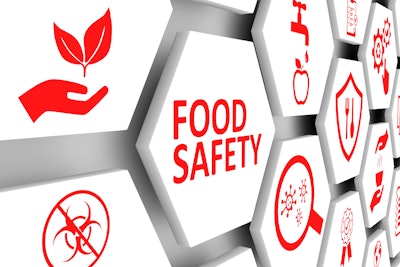
Many food businesses treat mock recalls as a compliance checkbox. Once they’ve checked the box, they don’t think about it again until another year rolls around or they have a safety breach that triggers a recall. This is a mistake, however, since recalls can impact a company’s brand reputation, operational stability, and economic bottom line. Consider recall preparedness to be a high-return investment that protects revenue, preserves brand equity, and strengthens long-term resilience.
As food recalls remain a constant, food businesses must proactively prepare for this scenario in advance. To accomplish this, companies must do the following:
Invest in automated systems. Even in today’s tech-focused world, many food businesses still use manual systems and processes. Unfortunately, manual processes lead to delays, errors, and regulatory risk. Imagine your team trying to use antiquated systems during a recall: rifling through paper files, manually calling trading partners, and trying to pinpoint the exact locations of contaminated products using an outdated Excel spreadsheet. Since a recall could happen to anyone at any time, every food business must be prepared to properly manage this, using automation to boost efficiency, transparency, and accuracy. Not only can tech solutions help prevent recalls from happening, but they can also facilitate faster, more accurate efforts when they do occur.
Automation saves significant time, costs, and labor. When using automation during a recall, companies can cut execution times in half, with significant labor savings of up to 90%. Automation also limits costly production downtime and reduces the risk of over-scoping the recall.
Start using automated systems now so you aren’t faced with the additional challenges and stress of implementing and onboarding in the midst of a recall crisis. It’s best practice to integrate recall management software with your traceability implementation to help integrate and streamline critical information.
Invest in training. Train your staff about recall protocols before they face a real-life recall situation. For companies and entire supply chains to be recall ready, employees must be educated about the process, assigned clear roles, and understand their specific responsibilities in advance.
What many companies currently call “training” is really just a traceability exercise. It stops at locating the product and never reaches the actual business process of executing a recall. That means the team never practices what matters most – coordinating roles, communicating with stakeholders, activating decision-making protocols, and documenting for compliance. In short, they may know where the product is, but not how to remove it from the market or communicate effectively while doing it.
It’s important not to just tell employees what to do – give them the chance to practice it. Full recall simulations are invaluable. They increase confidence, improve cross-functional coordination and surface gaps that don’t show up in theory. These hands-on exercises help ensure that employees know their roles, how to properly execute the recall, and can collaborate with trading partners to minimize damage and protect public health.
Training reduces costly missteps during an actual recall, helping teams avoid delays, incomplete or incorrect communication, and ineffective response action. A well-executed recall minimizes product loss, public exposure to compromised product, and potential brand damage. Regularly practice recall simulations with your internal team and supply chain so recalls are a routine business process instead of a chaotic crisis.
Invest in process efficiency. The food industry lacks data standards and system integration, which is problematic in a recall. When trading partners use different systems, processes, and data, it hinders recall speed, efficiency, and accuracy.
Streamlining your recall process, on the other hand, reduces the time it takes to decide on a recall, execute it, and reach resolution. A good recall plan outlines the process, improves data accuracy, clarifies roles and responsibilities, and eliminates confusion during execution. Investing in a well-constructed recall process is worth the time and money, as it will maximize efficiency, reduce redundant labor, minimize unnecessary product loss, and keep legal and regulatory costs in check.
Continuous refinement through post-event reviews and mock simulations leads to better outcomes with less expenditure.
Reduce reputational risk and business impact. Companies’ recall responses can impact consumer trust and loyalty, as well as the brand’s bottom line. Consider that 32.3% of consumers report they’re unlikely to purchase from a brand again following a recall, nearly a quarter of consumers (23.9%) state that a recall would have a high impact on their trust, with an additional 5.8% saying that they’d never buy from that brand again. A significant middle ground – 27.3% of consumers – remain unsure of how a recall would impact their trust in a brand.
But issuing a recall doesn’t have to erode customer trust and loyalty – if the food business handles the recall the right way. The reputational risk and business impact of a product recall can be minimal, but only when companies handle the recall effectively.
Many consumers understand that recalls can be an effort to protect public health, rather than a brand failure. They won’t necessarily blame a food brand for issuing a recall, but they expect to see the recalling company act swiftly to remove contaminated products from the marketplace, communicate clearly about the issue, and explain the efforts they’re taking to prevent future breaches. Consumers want to see companies take ownership, show integrity, and demonstrate that they’re working to effectively protect public health.
Tech solutions – like automation – allow food businesses to communicate directly to consumers with tailored messaging based on purchase patterns. Additionally, sophisticated tech tools help foster a culture of continuous improvement, so food businesses can reassure consumers that they’re prioritizing food safety and public health and working to minimize future safety breaches.
When food businesses handle a recall expertly and properly using tech tools, they can boost consumer trust and loyalty plus reduce financial, legal, and reputational fallout from the incident, turning risk into ROI.




